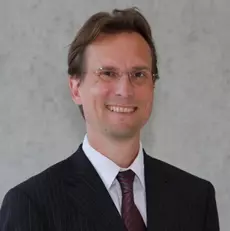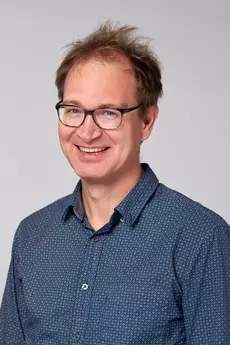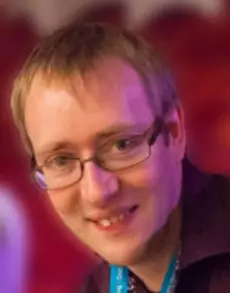Members Digital Futures Lab
These three fellows started in June. You can find out more about all our fellows by clicking here.
Alexander Posth

“The network is a huge advantage for me. With support from the Community, I hope to get better access to policy makers and better visibility.”
What are you researching?
It is about sustainable finance, about ESG (environment, social, governance). I want to help pension funds, banks and asset managers to invest more sustainably, and to support political leaders in advancing the necessary transformation towards a sustainable society and economy. On the one hand, to slow down climate change, but also to support fair trade, for example. Politicians have recognized that they cannot bring about this transformation on their own; a macroeconomic effort is needed. This means in particular that subsidies, for example, must not end up in the wrong place and that financial market participants must be encouraged to act sustainably. It is currently difficult to invest sustainably because there are many different sustainability or ESG "labels" that are difficult to compare. My goal is to create a high quality "label" for the financial market. To achieve this, I start on the side of the technologies: I want to measure the "Green Impact" via patents and thus make it comparable. Something similar to the energy consumption labels for electrical appliances, for example. So if a government or financial institution says to itself: "We want to promote or invest in companies that filter CO2 from the air and trap it underground", then with the help of my "label" it will be easier for them to decide which company is active in these technologies and thus fits their sustainability concept. And this label then carries weight, because it comes from an independent university.
So there are no such labels yet?
Yes, but they are partly created through surveys. So the companies then fill out themselves how "green and sustainable" they are. As a result, many ratings or scores in the ESG area have several weaknesses: qualitative statements, strong distortions in the data, conflicting ratings, and so on. I, on the other hand, compare the companies' patent portfolios with each other, and they are based on quantifiable data - that's exactly what I mean by "digitalization of greenness".
How can you benefit from the DFL Community?
In my research, I still have unanswered questions about the methodology, so I hope to have professional exchange with the Fellows in the community. Furthermore, the network is a huge advantage for me. I hope that the community will give me better access to policy makers and better visibility.
How does the ZHAW benefit from your research?
As a university, we can show that sustainability is important to us and that we take a scientifically proactive approach to the topic. My work combines the topics of digitization and sustainability. It can show politicians how they need to make their investments in order to transform the economy towards more sustainability - and this concerns us all.
Michael Gemperle

“I am breaking new ground in research. With my project, I would like to contribute to the fact that digital technologies are increasingly discussed from the perspective of their social use.”
What are you researching?
I am concerned with the use of digital technologies by midwives and gynecologists. In obstetrics, direct contact and conversation are highly valued - and at the same time, digital aids have a rather difficult position in this world. I would like to find out why. Therefore, I will conduct qualitative interviews and an online survey with midwives and gynecologists. On the other hand, I would like to discuss two or three particularly exciting applications of digital technology based on this survey. The corona situation has given the topic additional significance, and I am all the more motivated to work on these questions.
How can you benefit from the community?
As a sociologist, I am very interested in the social environments in which a technology is used. Due to the Fellows' different disciplinary backgrounds, I find the Community extremely stimulating in this respect!
What benefits do you offer with your research at the ZHAW?
I am breaking new ground in research. I would like to contribute to the increased discussion of digital technologies from the perspective of their social use. Finally, my work should provide basic knowledge that will help to ensure that this topic receives more attention in the training of professionals.
Josef Spillner

“It is important to me to be able to develop socially relevant knowledge about basic technologies. As a university of applied sciences, we can thus cover a wider spectrum, from innovation to transfer.”
What are you researching?
I am working on "Smart cities and regions services enablement." This could be, for example, the back end for an app that displays free parking spaces in the city or technologies that help to manage traffic in real time. The technologies used by application developers today are basically not very different from those that were in use ten years ago. One example is the new Corona Tracing App. The app runs with Bluetooth Low Energy as the latest technology part and this is available since 2009. I want to show that and how paradigm combinations can be used to develop such applications faster and better.
How can you benefit from the community?
I look forward to making contacts across institutes, which is something you don't normally do on a large scale. For example, I have already received some inquiries from potential Fellows who would like to apply.
How does the ZHAW benefit from your research?
I believe that my research contributes to building its profile. It is important to me to be able to develop socially relevant knowledge about basic technologies. As a university of applied sciences, we can thus cover a wider spectrum, from innovation to transfer.